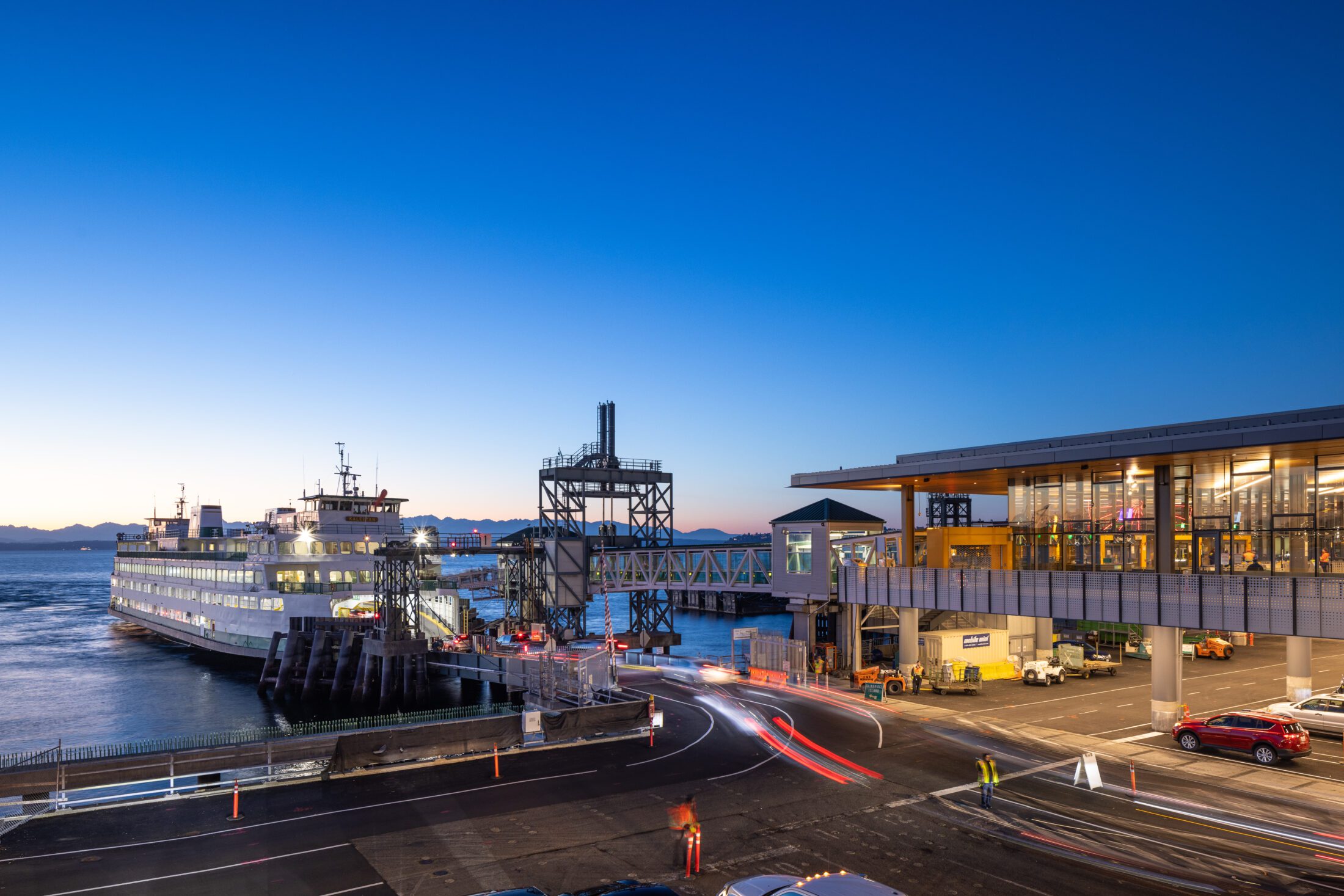Energy-efficient ferry terminals are a critical component of the Washington State Department of Transportation’s Sustainability Action Plan. For the replacement of Seattle’s Colman Dock, Washington State Ferries asked the design team to determine how close we could come to designing a new terminal building that generates as much energy as it uses.
We provided energy modeling to compare building orientation, envelope, and HVAC options. To find the most efficient way to keep the building cool in the summer, we combined energy modeling with computational fluid dynamics (CFD) airflow analysis to evaluate natural ventilation. Based on these models, the building’s large windows are placed to take advantage of prevailing winds and providing most of the building’s cooling. The windows also provide natural light and stunning views of the Olympic Mountains.
Heating and cooling are by far the biggest potential energy users in the building. Controlling temperatures presents a challenge because of the large terminal doors that open each time a boat leaves or arrives, allowing conditioned air to escape the building. The doors can open several times an hour, especially during the morning and afternoon commute, and stay open for several minutes as passengers disembark and board the vessel. In response to this challenge, we designed a radiant floor heating system that minimizes heat loss by warming people and objects, rather than the air. This translates to less heat loss and more energy saved.
FSi also provided mechanical designs for auxiliary buildings, including a facility for Seattle’s water taxi service, a popular commute option as well as a favorite of tourists along the city’s bustling waterfront.
From our saltwater highway to helping local children garden, we provide solutions of all sizes.
